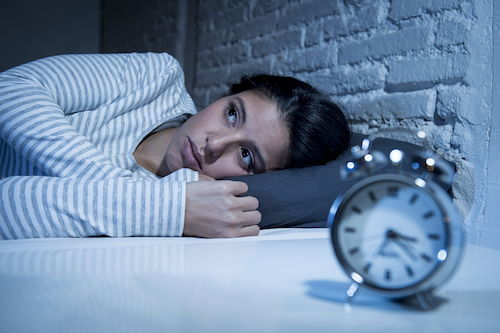 Did you get a good sleep last night?
Did you get a good sleep last night?
If you didn’t, you may find yourself feeling less social today, and less inclined to interact with others.
A poor night’s sleep may sound harmless, and just a part of everyday life, but researchers at the University of California Berkeley have found that those who are sleep deprived avoid close contact with others in a way similar to those with social anxiety. People who have poor sleep are also more likely to feel lonely and less socially attractive to other people.
“Loneliness is a killer. Being lonely increases your mortality risk by over 45 per cent; double that associated with obesity. Loneliness significantly increases your risk for developing numerous forms of mental illness, including depression, schizophrenia, anxiety and suicidality. Lonely individuals are also more likely to develop dementia, and do so prematurely,” Eti Ben Simon, lead study author and a postdoctoral fellow in the Center for Human Sleep Science at UC Berkeley told Theravive.
The recently published research shows a potential two-way link between lack of sleep and social isolation, which researchers say could be a contributing factor to an epidemic of loneliness around the world.
“Our findings point to a potential relationship between the rapidly rising rate of loneliness in developed nations, and the co-occurring sleep-loss epidemic in society. Experiencing loneliness puts you at greater risk for poor health and premature death down the line. Therefore, public-health campaigns focused on sleep (of which no first-world nation has yet undertaken) may bend the arrow of escalating loneliness back down, lowering the marked personal and financial cost associated with social isolation,” Matthew Walker, senior author and a UC Berkeley professor of psychology and neuroscience told Theravive.
A national survey of Americans found nearly half report feeling lonely or left out and the researchers say the impact of sleep deprivation on social behaviours could be catching. They found that people who were well rested felt lonely after only a brief interaction with a person who was sleep deprived.
“The antisocial impact of sleep deprivation is transmissible: people who come in contact with a sleep-deprived individual, even during a short, 60 second experience, feel lonelier themselves as a result. Loneliness caused by a lack of sleep is contagious,” Ben Simon said.
To study how poor sleep can impact social behaviours, the researchers tested both social and brain responses of 18 young adults following a sleepless night, and a typical night’s sleep. The participants were asked to view a video featuring a person with a neutral expression walking towards them. When the participant felt the person in the video was getting to close to them, they hit a button that would stop the video, and also record how close the participants allowed the person in the video to get to them.
The researchers found that the participants who had a poor night’s sleep the night before kept the person in the video further away than the participants who had a good sleep the night before. Those who were sleep deprived kept the person in the video 18 to 60 per cent further away than those who had a good sleep.
Those participating in the study also had their brains scanned whilst watching the videos. Those who had poor sleep were found to have heightened levels of brain activity in an area of the brain referred to as the “near space network”, that comes into play when the brain encounters a potential incoming human threat. As well as this, an area of the brain that is responsible for encouraging social interaction was shut down in those with sleep deprivation.
In a different part of the study, 1000 participants watched videos of study participants as they discussed everyday issues and activities. Those watching the videos were not told about the sleep patterns of the participants in the video and were asked to rate each participant based on how lonely they seemed, and also whether they would be interested in socially interacting with them.
Overall, those who were sleep deprived were rated as appearing lonelier, and were less desirable socially.
To find out whether a single night of good quality or bad sleep could make a difference to how lonely a person was the next day, the researchers asked participants to fill out a survey that asked how often participants felt they had no one to talk to, or how often they felt isolated. They found that even one night can make a difference, for better or worse.
“We human beings were not designed to be alone. Sleep is a glue that, biologically and psychologically, binds us together as a species. Ironically, sleep is often viewed as something that takes us away from social activity. The opposite appears to be true. Sleep reconnects us with our social circle; with our friends, colleagues, partners and even with strangers,” Walker said.
Elizabeth Pratt is a medical journalist and producer. Her work has appeared on Healthline, The Huffington Post, Fox News, The Australian Broadcasting Corporation, The Sydney Morning Herald, News.com.au, Escape, The Cusp and Skyscanner. You can read more of her articles here. Or learn more about Elizabeth and contact her via her LinkedIn and Twitter profiles.